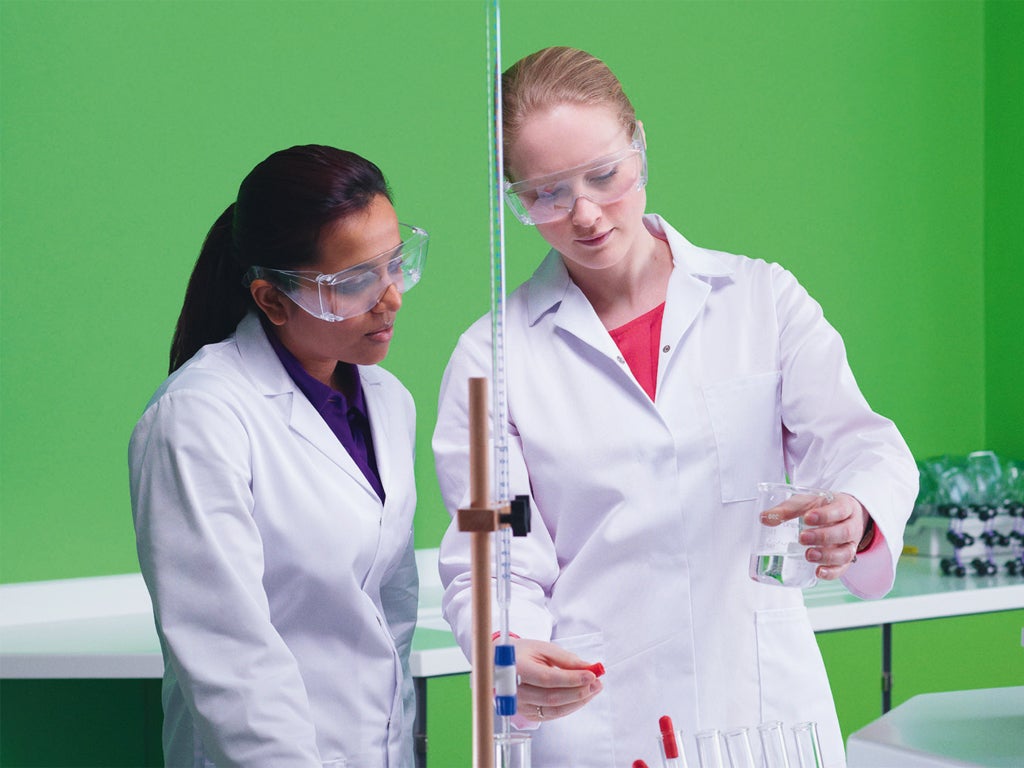Use your subject expertise in teaching
Teachers in maths, physics and chemistry are more in demand than ever. Many are rising quickly through the ranks

Your support helps us to tell the story
From reproductive rights to climate change to Big Tech, The Independent is on the ground when the story is developing. Whether it's investigating the financials of Elon Musk's pro-Trump PAC or producing our latest documentary, 'The A Word', which shines a light on the American women fighting for reproductive rights, we know how important it is to parse out the facts from the messaging.
At such a critical moment in US history, we need reporters on the ground. Your donation allows us to keep sending journalists to speak to both sides of the story.
The Independent is trusted by Americans across the entire political spectrum. And unlike many other quality news outlets, we choose not to lock Americans out of our reporting and analysis with paywalls. We believe quality journalism should be available to everyone, paid for by those who can afford it.
Your support makes all the difference.“I feel wanted,” notes Drew Thompson, a physics teacher at Rickmansworth School in Hertfordshire.
He’ s right, too. Talented teachers are in demand, and the Government is investing heavily in science and maths education.
“There’s a real need for high quality physics teachers in my region – so, if you’re one of them, you’re important,” he says.
He and Ariel Roukaerts, a maths teacher at Fowey Community College in Cornwall, have progressed quickly. After just three years in teaching, Roukaerts became deputy head of her subject. Thompson has been teaching for five years. “I’ve progressed quickly in areas that I enjoy. I am interested in IT and took on the responsibility for e-learning. I have also become head of astronomy and assistant head of physics.” He’s driven and ambitious. “I’d like to be a deputy head – maybe even head one day,” says Thompson.
These are the types of high fliers that make excellent teachers. Thompson gained a 2:1 in astro-physics at the University of Edinburgh and then joined a teacher training course at the University of Bath. Roukaerts’ path was less direct. After finishing a drama degree in the US, she tried a variety of jobs. “I got sick of them all,” she laughs. “I wanted a job that would give back to my community and give back to me, where I could learn every day.” Roukaerts chose maths because “a lot of children don’t engage with the subject. I wanted to turn it into something enjoyable – a lesson they would look forward to.”
There are several ways into teaching, including conventional training courses and the new schoolled School Direct route. There’s significant funding available too. For those looking to start teacher training in physics, chemistry or computer science, scholarships of £20,000 are available. The Institute of Physics has 100 scholarships, the Royal Society of Chemistry has 130 scholarships and it has recently been announced that BCS, the Chartered Institute for IT, has 50 scholarships available to eligible trainees starting their teacher training in the 2013/2014 academic year. Also, big tax-free bursaries of up to £20,000 are on offer for people with top degrees interested in teaching maths, physics and chemistry.
Candidates starting a teacher training course from September 2013 must have passed the professional skills tests in numeracy and literacy before beginning training.
Find out more at education.gov.uk/teachskillstests. Applications to conventional teacher training courses and School Direct are now open for 2013/14. Apply early to ensure you’re considered by your first-choice training provider or school.
Search ‘get into teaching’ or call 0800 389 2500
Join our commenting forum
Join thought-provoking conversations, follow other Independent readers and see their replies
Comments